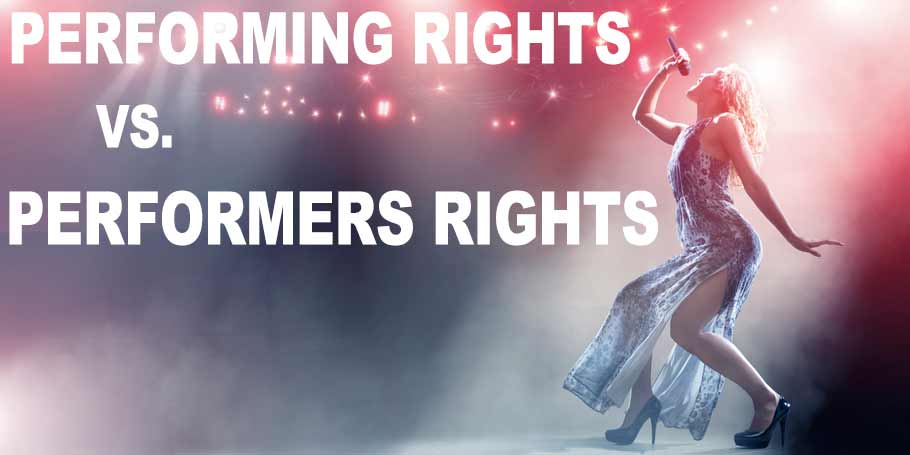
The right to perform music in public is referred to as "Performing Rights"... unsurprisingly. However this should not be confused with PERFORMERS RIGHTS which refers to the protection of performers, which states "A performer (musician, actor, etc.) has an intellectual input in their performance over and above that of the author of the work". Confused? ... We're not surprised ;o/
Simply put there's two sides to music - the writing of the music (the notes and the lyrics) and the playing of the music (band members playing the notes and singing lyrics as laid out by the composers.)
Talking from the side of the composer / ideas only stage of creating the music, if you've written or helped the writing process of a song then in our unanimous opinion, you should be registered for a percentage of that song. Here in the UK the governing body is "PRS for Music" who are a bunch of awesomely cool guys who fight for the musician's rights, collect money on their behalf and distribute it according to the percentage split laid out on their database.
The other side of music is the master / record label / recording / actual playing of the music.... Covered by "Performers Rights." There is a governing body in the UK that covers this side called PPL. Acting for its members, PPL collects money (royalties) on the recorded music side, when it is played in public or broadcast on TV, radio, etc. They represent tens of thousands of performers and record companies ranging from the majors right down to small businesses and literally one-man-bands ;) Many thousands of broadcasters and businesses all over the UK pay a license fee to PPL
So performing rights are the royalties due to be paid to the composer in order to gain permission to perform in public their piece of music, which is under copyright. The bottom line is.. performers must pay performing rights to composers. As the companies that act for established composers have put a great deal of money behind promoting thier artists, they expect larger payouts for advertising and other synch opportunities. As such we spend too much time negotiating a deal that is not very profitible for us. It is for this reason that we don't accept 'covers' or performances that are not 100% owned by the artist into our catalogue. If one of our clients askes us to clear the publishing license for a specific song with the original composer and then have one of the artists we represent perform it then this is a different matter of course.
